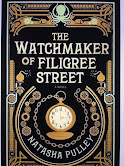Librarians on the Front Lines: A Peek at WWI Historical Fiction by Theresa Gauthier
Miss Morgan’s Book Brigade by Janet Skeslian Charles
Miss Morgan’s Book Brigade isn’t just about Miss Morgan and the group of women volunteers who braved the front during World War I to bring—not send, but bring—aid to those who hadn’t evacuated. It’s also about a woman in the 1980s who discovered the untold history of the group and how she becomes obsessed with telling the world about it.
World War I was called The War to End All Wars for good reason. What I’d never actually considered was that people refused to leave—and continued to live—close to the front lines for much of the conflict.
The CARDs, as the ladies were called, (the American Committee for Devastated France translates to Comité Américain pour les Régions Dévastées de France) did everything from providing food, transportation, medical aid, books, and more to those left behind in the region of France closest to the Front. Morgan was the youngest daughter of J.P. Morgan, and was able to raise money and awareness for the need of the services her CARDs supplied.
While the story focuses on Jessie Carson as she joins the group, it also jumps forward to 1987 where Wendy Peterson, working at the New York Public Library, comes across a mention of Carson and becomes consumed with a need to learn all she can about Carson and her fellow CARDs.
Wendy is an aspiring writer, and begins writing up what she uncovers determined to complete a manuscript and publish it so that the CARDs will no longer be forgotten historical footnotes. In the process, she alienates the man she considers her best friend, pushes herself outside her comfort zone on so many levels, and eventually meets the last living CARD.
What I loved most about this book was the historical chapters and the relationships among these strong women doing work men wouldn’t or couldn’t do, and doing it well and often under threat of death. Between evacuations when the enemy gets too close, to the lingering effects of gas poisoning, to traveling close to the Front in search of refugees, the dangers were real. Death, poisoning, injury, bad health, and even the Flu Pandemic of 1918 threaten the lives of these brave women as they do everything they can to help those most in need.
It’s easy to understand Wendy Peterson’s obsession with them, and her strong desire to bring them into the spotlight. Her eventual meeting with a CARD, asking questions, learning first hand about these women whom she’d stumbled upon quite by accident, and filling in the blanks that history books leave whenever the deeds of a woman are mentioned.
Going back and forth between 1918 and 1987, foreshadowing is inevitable. When Wendy considers marriage and a subsequent name change as a possible reason she can’t find much information on Jessie Carson, it’s hard not to think Carson might just marry one of the soldiers she’s gotten to know. When mention of one young CARD’s possible education in 1918, it’s hard not to anticipate mention of it as Wendy Peterson dives deep into her research. The book benefits from this back and forth. By the time Wendy meets the last of the CARDs, the reader is as excited as she is to have a chance to speak to this old woman who was only a teenager in 1918.
A glimpse at a little known era of history brought to vivid life, Miss Morgan’s Book Brigade is worth a read.







Comments
Post a Comment